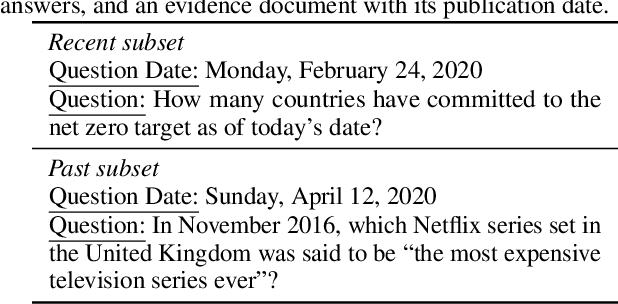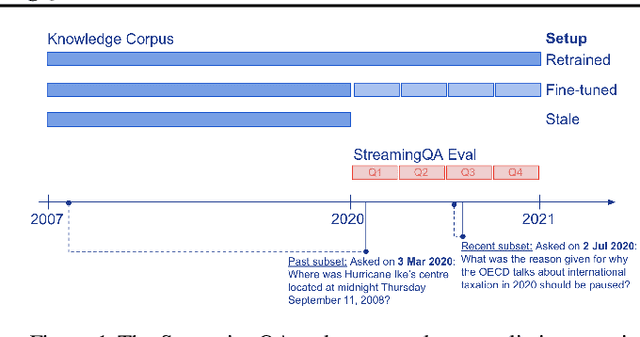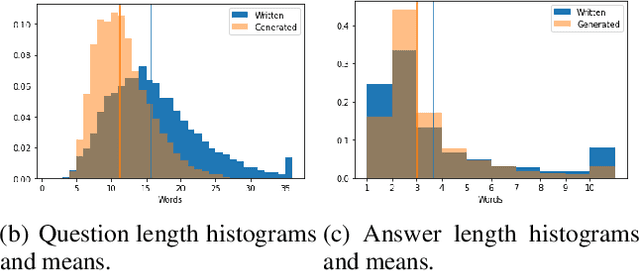Tim Scholtes
StreamingQA: A Benchmark for Adaptation to New Knowledge over Time in Question Answering Models
May 23, 2022



Abstract:Knowledge and language understanding of models evaluated through question answering (QA) has been usually studied on static snapshots of knowledge, like Wikipedia. However, our world is dynamic, evolves over time, and our models' knowledge becomes outdated. To study how semi-parametric QA models and their underlying parametric language models (LMs) adapt to evolving knowledge, we construct a new large-scale dataset, StreamingQA, with human written and generated questions asked on a given date, to be answered from 14 years of time-stamped news articles. We evaluate our models quarterly as they read new articles not seen in pre-training. We show that parametric models can be updated without full retraining, while avoiding catastrophic forgetting. For semi-parametric models, adding new articles into the search space allows for rapid adaptation, however, models with an outdated underlying LM under-perform those with a retrained LM. For questions about higher-frequency named entities, parametric updates are particularly beneficial. In our dynamic world, the StreamingQA dataset enables a more realistic evaluation of QA models, and our experiments highlight several promising directions for future research.
CoBERL: Contrastive BERT for Reinforcement Learning
Jul 12, 2021



Abstract:Many reinforcement learning (RL) agents require a large amount of experience to solve tasks. We propose Contrastive BERT for RL (CoBERL), an agent that combines a new contrastive loss and a hybrid LSTM-transformer architecture to tackle the challenge of improving data efficiency. CoBERL enables efficient, robust learning from pixels across a wide range of domains. We use bidirectional masked prediction in combination with a generalization of recent contrastive methods to learn better representations for transformers in RL, without the need of hand engineered data augmentations. We find that CoBERL consistently improves performance across the full Atari suite, a set of control tasks and a challenging 3D environment.
 Add to Chrome
Add to Chrome Add to Firefox
Add to Firefox Add to Edge
Add to Edge